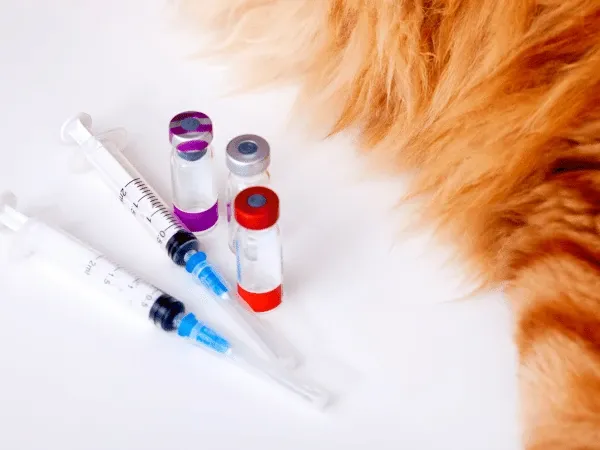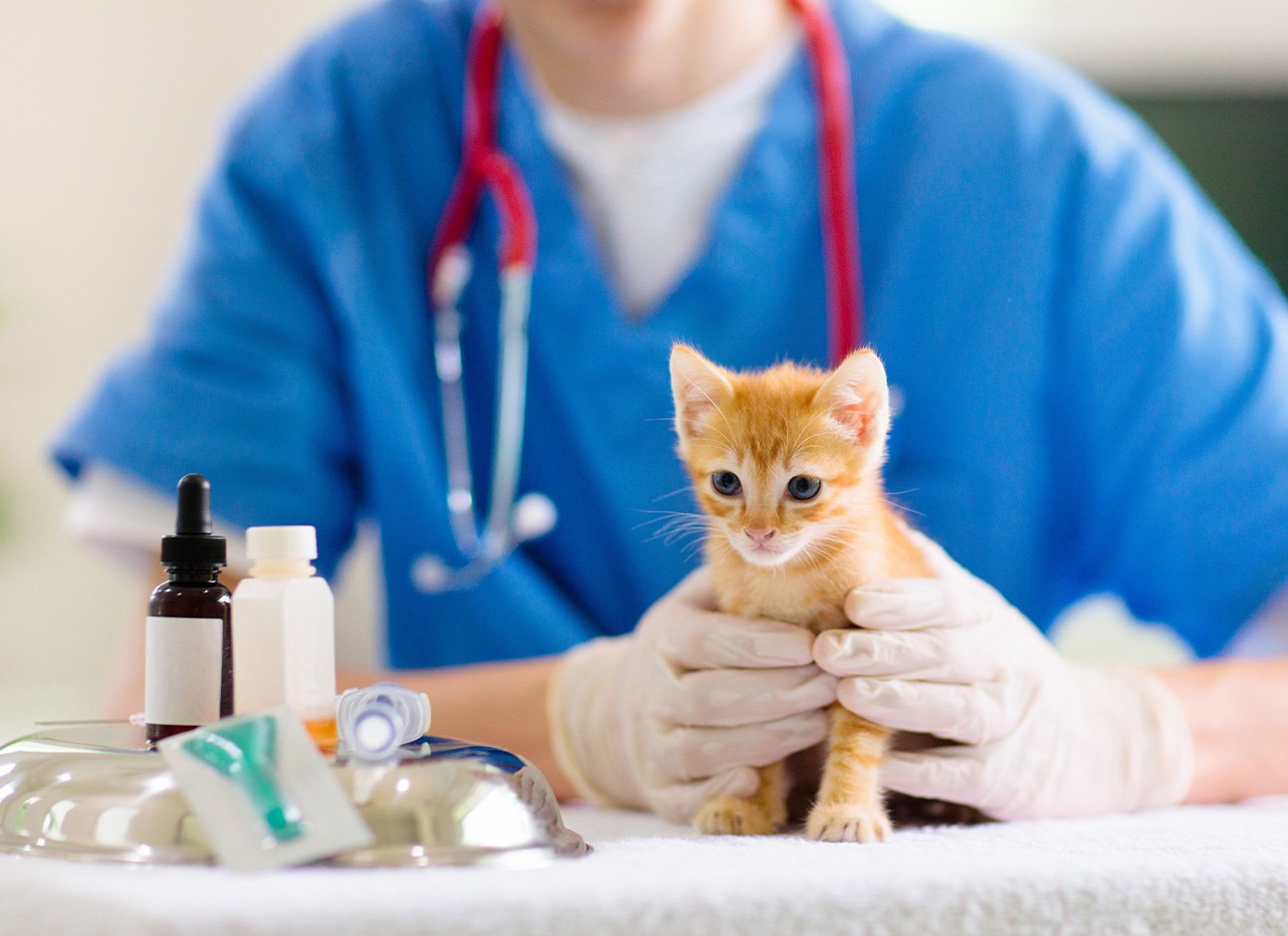Reviewed by Dr. Sarah Yosry
Updated on 1/12/2025
Reading time 2 min.
Overview
Severity: Low
Life stage: All
Cats frequently find themselves in places they shouldn’t be, exposing themselves to innumerable forms of danger. Quite often, the worst enemies are the unseen ones that take the form of harmful bacteria and viruses. The most effective way to protect your feline friends from them is through vaccination.
Benefits of vaccination in cats
Despite the different views on vaccines, it is important to acknowledge the benefits of inoculation. Vaccines help to protect your cat from infectious bacteria and viruses by creating an immune response within their body. In addition to enhancing your pet’s immune system, vaccines have also prevented death and disease in a multitude of cats over the decades.
Types of vaccines
While the number and type of vaccines differ from cat to cat, it is recommended that all cats get vaccinated against Rabies, Panleukopenia (feline distemper), Feline calicivirus, and Feline viral rhinotracheitis. The vaccines for rhinotracheitis, calicivirus, and panleukopenia come combined in a single shot (FVRCP) and is also referred to as the “distemper shot”. Your veterinarian can help you determine what vaccines are needed for your pet depending on your cat’s health status, age and lifestyle, likelihood of exposure to a particular disease(s), and legal requirements.

Kittens usually receive a series of vaccine shots every 3 to 4 weeks. They must get their first shot when they are 6 to 8 weeks old and the inoculation process continues until they are about 16 weeks old. Vaccinating adult cats depends on several factors including risk of exposure, duration of vaccine immunity, the chances of the cat passing on the disease to humans, etc.
Your veterinarian can offer better guidance on vaccinating your cat.
Conclusion
It is a common misconception that indoor cats are exempt from the illnesses and infections that plague cats who spend more time out of doors. However, they can still come down with airborne diseases that travel through windows and doors. Besides, there is always the possibility of them sneaking out which can lead to exposure to certain diseases and infectious germs. This makes it all the more imperative to vaccinate your cat as per your veterinarian’s advice.
However, it is also important to note that no vaccine can offer your pet complete protection against disease-causing germs and pathogens. In addition to vaccinating them, you can protect your cat by monitoring their movements and keeping them away from infected cats.
Share this, choose your platform!
Writen by
Dr. Sarah Yosry
DVM
A product of a rich Australian/Egyptian heritage, Dr. Sarah Yosry stands as a testament to the union of diverse cultures and a shared love for animals…


